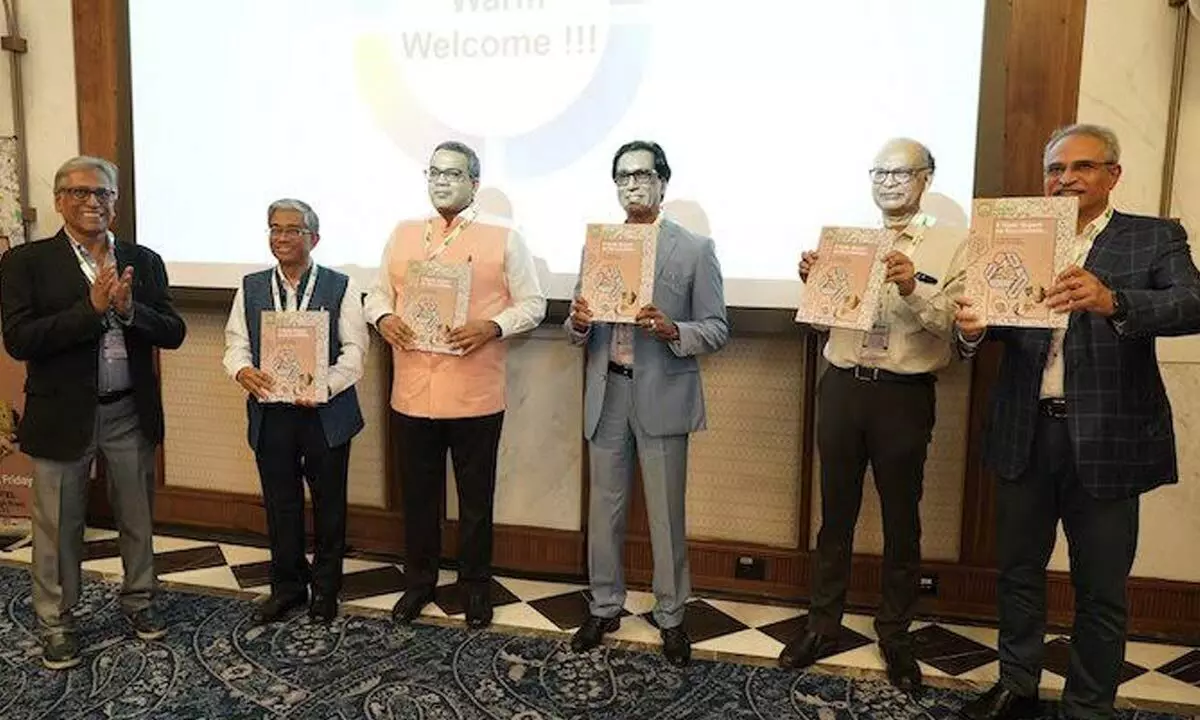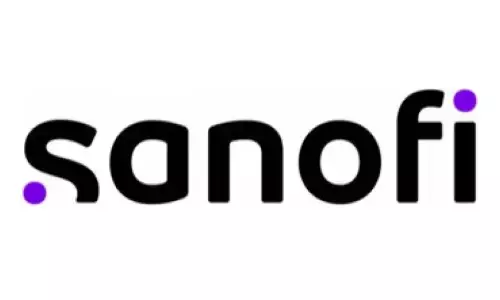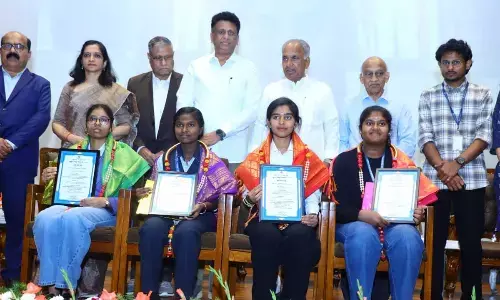Recyclability of multi-layered aseptic packaging

Ashok Chaturvedi, Chairman and Managing Director, UFlex Limited, released a study report on ‘Recyclability of Multi-Layered Aseptic Packaging’ at a special roundtable organized by Plastics Packaging Research and Development Centre (PPRDC)
Ashok Chaturvedi, Chairman and Managing Director, UFlex Limited, released a study report on ‘Recyclability of Multi-Layered Aseptic Packaging’ at a special roundtable organized by Plastics Packaging Research and Development Centre (PPRDC). The report was unveiled in the presence of Deepak Mishra, Joint Secretary, Department of Chemicals and Petrochemicals, Government of India, and Prof. (Dr) Shishir Sinha, DG-CIPET.
Ashok Chaturvedi, Chairman and Managing Director, UFlex Limited said, “We welcome the government’s initiatives toward clean India as it is a stepping-stone for a clean planet. As a global leader in packaging, we have made significant investments in industrial and MLP (multi-layer mixed plastic) waste recycling facilities across our global locations and very recently, in multi-layer aseptic recycling technology”.
“Historically, multi-layer aseptic packaging is considered “non-recyclable” as the packaging structures are made of a mix of materials (such as paper, polyethylene, and aluminum foil). Multi-layer aseptic packaging mostly ends up in landfills or is incinerated. UFlex has invested in an advanced Enzymatic Delamination Technology to enable aseptic packaging recycling. Enzymatic delamination utilizes enzymes to break down the bonding between different layers of the packaging materials, allowing for the separation of individual layers such as paper and polyethylene/foil laminate which can be reused in the production of new products. UFlex has set up a state-of-the-art aseptic packaging recycling facility in Gwalior and would like to invite brand owners, civic bodies, NGOs, and recyclers to visit our facilities and learn more about this technology”.
“This report will help brand owners and recyclers appreciate the technical processes, possibilities, and financial returns on recycling MLAP (multi-layer aseptic plastic) waste. In a country like India, this could provide a direction for the treatment of aseptic plastic waste in a sustainable manner and bring circularity in aseptic packaging”.
“We all realise that this world cannot do without plastic packaging, and it is the biggest contributor to our farmers’ income. 90% of the produce from farmers is made available to consumers thanks to MLP packaging. While we have invested our own time and money, and developed technology to pave the way for recycling in India, we believe that adequate regulatory support in creating the right environment to boost recycling is the need of the hour. Often, a well-drafted law accelerates the pace of change like nothing else.”
Anantshree Chaturvedi, Vice Chairman and CEO of Flex Films International, said, “The PPRDC roundtables are a great initiative to bring all stakeholders together to discuss industry trends and best practices toward a collective goal. We recently showcased our global sustainability project called ‘Plastic Fix’ at the PRDC roundtable that applies recycling, pyrolysis, biodegradable enzymes, and other practical solutions to enhance the recyclability and circularity of plastics.”
Ashwani K. Sharma, President and CEO, Aseptic Liquid Packaging Business, UFLex Limited, said, “At UFlex, we recognize the critical role of aseptic packaging in our modern economy, and we are committed to driving innovation that aligns sustainability with economic progress. Our advanced enzymatic delamination technology is a testament to our investment and commitment to highly efficient, technologically advanced, and sustainable practices. By upcycling aseptic packaging waste into valuable industrial and daily-use products, we are paving the way to address one of the biggest challenges of recycling aseptic packaging waste for the industry and the country. We look forward to playing a critical role in creating a more sustainable future for India and beyond.”
The release of the report was followed by an address on ‘Aseptic Liquid Packaging - Opportunities & Challenges’, by Ashwini K. Sharma, President and CEO, Aseptic Liquid Packaging Business, UFlex. He also showcased UFlex’s advanced aseptic recycling facility at Gwalior which upcyles aseptic packaging waste into several industrial and daily-use items. This was followed by a presentation on Recycling of MLP (Category III) – Recycling Methods by Jeevaraj Pillai, Chief Sustainability Officer, UFlex and Trustee – PPRDC, and Dr Paijit Sangchai, Enzymologist, and a presentation on Meeting EPR guidelines for MLP (Category – III) by Vikas Garg from A A Garg and Company. Other speakers included Mr. Mihir Banerji, Secretary General, and Coordinator, PPRDC, and Manas Sarkar, Business HR Head, and Sustainability Lead, Packaging Business, UFlex, and Council Member - PPRDC.









